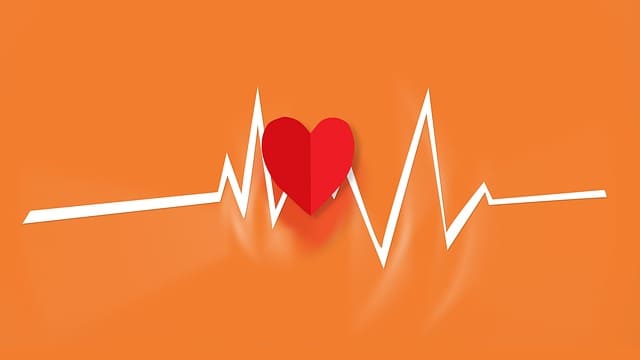Is caffeine bad for your heart ? The American Heart Association has shared insights on the relationship between caffeine and heart health. But how does your daily coffee consumption influence your cardiovascular health? This article explores the intricate dance between caffeine and the heart, diving deep into the research and advice from experts. Worth a read for every coffee lover, or anyone concerned about their heart health.
Caffeine and Its Sources
Caffeine is a natural stimulant found in various plants. The most common sources include tea and coffee, but it’s also prevalent in energy drinks and some medications. For many, the caffeine from a few cups of coffee per day is a vital Kickstarter. Yet, its effects vary depending on factors such as individual sensitivity and how one metabolizes caffeine.
Some people may experience a surge of energy and increased alertness after consuming caffeine, while others might feel anxious or jittery.
When consumed, caffeine acts as a central nervous system stimulant, blocking the adenosine receptors in the brain. Adenosine is a neurotransmitter that promotes sleepiness and relaxation. By blocking these receptors, caffeine prevents adenosine from binding to them and thus keeps you awake.
How Does Coffee Consumption Affect Heart Disease?
While coffee is a complex beverage with multiple components, there’s been a focus on the relationship between coffee intake and heart disease risk. Some studies indicate a possible inverse relationship between coffee consumption and coronary heart disease, suggesting that moderate coffee consumption might be protective. Heavy coffee consumption can have a negative impact on your heart, emphasizing the importance of balance.
One of the key components in coffee that has been studied extensively is caffeine. Caffeine is a stimulant that can increase heart rate and blood pressure temporarily. The effects of caffeine on heart health vary from person to person, depending on factors such as genetics, overall health, and individual sensitivity.
Is There a Safe Amount of Coffee to Drink?
Yes, moderate coffee consumption is generally considered safe for most people and may even confer health benefits. “safe” is subjective and can vary depending on an individual’s tolerance, age, weight, and any underlying health conditions. Here are some general guidelines and considerations:
General Recommendations:
For most adults, consuming 3 to 4 cups of coffee per day (providing 300-400 mg of caffeine) is considered safe and might even be beneficial. High doses of caffeine can cause side effects.
Pregnancy:
Pregnant women are often advised to limit their caffeine intake. The American College of Obstetricians and Gynecologists suggests pregnant women should consume no more than 200 mg of caffeine per day (roughly one 12-ounce cup of coffee). High caffeine intake during pregnancy might be linked to adverse outcomes like miscarriage, premature birth, low birth weight, and developmental delays.
Individual Tolerance:
Some people metabolize caffeine slower due to genetic differences, making them more susceptible to its effects. If you find yourself overly sensitive to caffeine, you should adjust your intake accordingly.
Other Considerations:
Many coffee drinks contain added sugars, fats, and calories which can impact overall health, especially if consumed in large quantities. It’s also worth noting that some medications and supplements might interact with caffeine.
while moderate coffee consumption can be safe and even beneficial for many people, it’s essential to consider individual factors and potential interactions with other conditions or medications. If in doubt about your coffee consumption, consult with a healthcare professional.
What Does the American Heart Association Say?
The American Heart Association (AHA) has recognized that coffee can be a part of a healthy diet but, like many things, should be consumed in moderation. Here’s a summary of what the AHA has conveyed regarding coffee and heart health:
Moderation:
Moderate coffee consumption (3-4 cups daily, providing 300-400 mg of caffeine) doesn’t appear to be associated with an increased risk of major chronic diseases, such as heart disease, and might even be protective against stroke.
Research:
Some studies have found a potential association between coffee consumption and reduced risk of heart failure and stroke. For instance, one study highlighted that, for every cup of coffee consumed per week, there was a 7% reduction in the risk of heart failure and an 8% reduction in the risk of stroke.
Blood Pressure:
Caffeine can cause a short-term spike in blood pressure, but there is limited evidence to suggest that regular coffee consumption leads to a sustained increase in blood pressure or a significant risk of cardiovascular disease for most people. Those who have certain conditions, like arrhythmias or hypertension, should discuss coffee consumption with their doctor.
Cholesterol:
Some components in unfiltered coffee (like French press or Turkish coffee) can raise LDL (bad) cholesterol. If you’re concerned about cholesterol, it’s best to stick to filtered coffee.
Other Health Aspects:
The AHA also notes that while coffee may not be harmful to the heart, other ingredients added to coffee, such as cream and sugar, can contribute to increased calories, fat, and sugar intake, which may impact overall heart health.
Individual Responses:
The AHA acknowledges that individuals vary in their tolerance and response to coffee and caffeine. Some people might be more susceptible to the effects of caffeine on blood pressure or may experience palpitations. It’s crucial to listen to your body and consult a physician if you have concerns.
Overall Diet and Lifestyle:
It’s essential to consider coffee consumption as a part of an overall diet and lifestyle. Consuming coffee while maintaining a balanced diet, engaging in regular physical activity, avoiding smoking, and managing stress are all crucial for heart health.
Remember that scientific understanding and guidelines can evolve. It’s always a good idea to refer to the official AHA website or consult a healthcare professional for the most recent recommendations and research findings.
Are Energy Drinks More Harmful than Coffee?
Comparing energy drinks to coffee in terms of potential harm involves considering several factors, including their ingredients, the amounts typically consumed, and the overall context of their use. Here are some points to consider:
A.Caffeine Content:
Coffee:
The caffeine content in coffee can vary widely depending on the type, preparation method, and serving size. A typical 8-ounce (240-milliliter) cup of coffee contains about 95 milligrams of caffeine, but this can range from 30 to 200 milligrams.
Energy Drinks:
These can also vary in caffeine content, but many popular brands contain between 70 and 240 milligrams per serving. Some products may contain even more.
B. Other Stimulants:
Coffee:
Primarily contains caffeine.
Energy Drinks:
Many contain other stimulants like taurine, guarana, and B-vitamins. While some of these ingredients are not harmful on their own or in small amounts, their combined effect with caffeine is not fully understood.
C. Sugar Content:
Coffee:
Unless sugar is added, coffee naturally contains no sugars.
Energy Drinks:
Many contain high levels of sugar, which can contribute to weight gain, dental problems, and metabolic issues when consumed in excess.
D. Consumption Patterns:
Coffee:
Most people drink coffee in moderation and understand their own tolerance to caffeine.
Energy Drinks:
Especially popular among younger populations, there’s a concern about excessive or rapid consumption, potentially leading to caffeine overdose. There have been reports of health issues, and in some cases, deaths linked to the overconsumption of energy drinks.
E. Risks:
Both:
Overconsumption of caffeine from any source can lead to jitters, heart palpitations, high blood pressure, insomnia, digestive problems, and in extreme cases, more serious health issues.
Energy Drinks:
Some studies suggest they might be associated with a higher risk of heart problems compared to caffeine intake from other sources. The combination of caffeine with other stimulants and additives may enhance the effects of caffeine or have other unforeseen effects.
F. Dependency and Withdrawal:
Both coffee and energy drinks can lead to caffeine dependence. Regular consumers might experience withdrawal symptoms like headaches, fatigue, irritability, and difficulty concentrating if they suddenly stop or reduce their intake.
What’s the Effect of Caffeine on Heart Rhythm?
Caffeine can cause heart palpitations in some people. Excessive consumption has been associated with abnormal heart rhythms, A stimulant found in various beverages and foods, can have different effects on heart rhythm depending on the individual.
While most people can consume caffeine without experiencing any significant issues, some individuals may be more sensitive to its effects.
For those who are susceptible, consuming excessive amounts of caffeine can lead to heart palpitations. These palpitations often feel like a rapid or irregular heartbeat and may cause discomfort or anxiety.
How Does Caffeine Content Vary in Different Drinks?
Not all caffeinated beverages are created equal. A standard cup of coffee may contain between 70 to 140 mg of caffeine, whereas an energy drink might have anywhere from 50 to 300 mg. Knowing the caffeine content in your drink of choice is crucial to managing your daily intake.
Other popular caffeinated beverages like tea and soda also vary in their caffeine content. A cup of black tea typically contains around 40 to 70 mg of caffeine, while green tea usually has around 20 to 45 mg. Herbal teas, such as chamomile or peppermint, are generally caffeine-free.
When it comes to soda, the amount of caffeine can differ greatly depending on the brand and type. Cola drinks tend to have higher levels of caffeine compared to other flavors.
Can Excessive Caffeine Lead to Heart Failure?
While the risk of heart failure due to caffeine is low for the general population, excessive caffeine intake can increase blood pressure and strain the chambers of the heart. It’s crucial to maintain a moderate caffeine consumption and be aware of how your body reacts.
Long-term excessive caffeine consumption has been associated with an increased risk of developing various cardiovascular conditions, including heart failure. Heart failure occurs when the heart is unable to pump enough blood to meet the body’s needs.
Caffeine acts as a stimulant that affects the central nervous system, increasing alertness and temporarily boosting energy levels. When consumed in excess, caffeine can cause a temporary rise in blood pressure due to constriction of blood vessels.
The Correlation Between Caffeine and Coronary Heart Disease
There’s ongoing research on the correlation between caffeine intake and the risk of developing coronary heart disease. Some studies suggest a protective effect, while others indicate potential harm. The consensus? Coffee in moderation, coupled with a balanced diet, is the key.
What Are the Potential Adverse Effects on the Heart from Caffeine?
Excessive caffeine can lead to increased heart rate, palpitations, and high blood pressure. Those with pre-existing health conditions or a history of heart disease should be especially cautious and consult with a health care provider before making any significant changes to their caffeine habits.
Conclusion:
- Moderate coffee consumption can be part of a healthy lifestyle.
- It’s essential to know the caffeine content in your preferred beverages.
- Consult with a health care professional if you have heart disease or are sensitive to caffeine.
- Balance is key – both in caffeine intake and overall lifestyle choices.


Leave a Reply